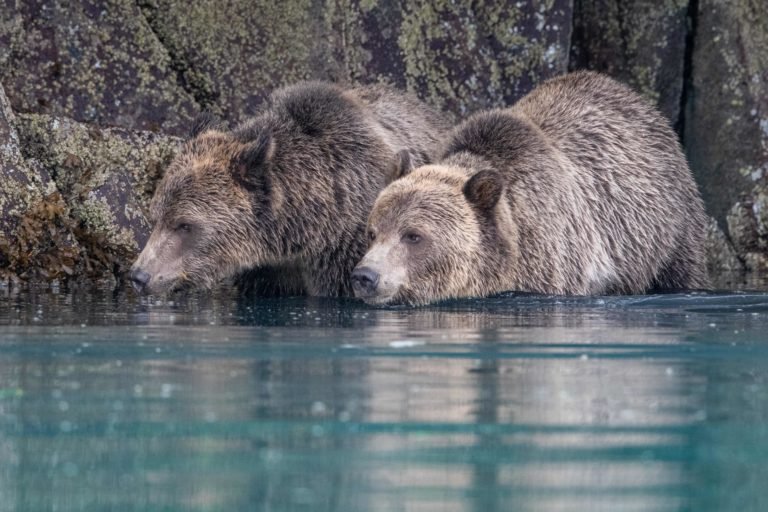“You’ll see Voyage Foods branding on the front and back of the label,” says founder and CEO Adam Maxwell, who was speaking to FoodNavigator-USA after raising $36m in a series A round led by funds managed by UBS O’Connor and Level One Fund, bringing the Oakland, CA-based firm’s cumulative funding to $41.7m.
According to Voyage Foods and a flurry of other startups exploring ways to reverse engineer coffee and cocoa using other plants, or cell culturing approaches, the amount of land that can sustain coffee is steadily dropping thanks to climate change; while cacao production is variously associated with deforestation, a high water footprint, and child labor.
“If you look at cocoa and coffee prices over the last 20 years, there’s massive volatility,” says Maxwell, who is exploring the potential of cheaper, upcycled ingredients such as grape seeds (a byproduct of the wine-making industry) to create more sustainable and affordable alternatives.
“But if you normalize the curves, they’re just going in one direction [spoiler alert: it’s up].”
How do you persuade them to ditch their favorite foods in favor of more sustainable alternatives in the short term?
Maxwell – who has raised more than $40m in just over a year - has clearly convinced investors there’s money to be made in “future-proofing time-tested favorite foods,” with one backer making the bold claim that the “unique technology and process behind this quantum leap can liberate us from the volatile commodity prices, humanitarian issues, and negative environmental impacts tied to the mass production of cocoa, coffee, and many other crops.”
So that’s the long-term vision. But what are the immediate purchase drivers for Maxwell’s products?
Even if you can convince consumers that some of their favorite foods are not very sustainable, or may become prohibitively expensive down the road thanks to climate change and rising costs, how do you persuade them to ditch their favorite foods in favor of more sustainable alternatives today? (Atomo, for example, has developed a coffee bean-free coffee that isn’t bitter, offering an immediate benefit.)
And for consumers that do care about sustainability or unethical labor practices in food supply chains, don’t certifications such as Fairtrade and Rainforest Alliance already give them a way to have their cake and eat it too?
‘There’s a reason why Fairtrade chocolate and coffee exists’
Maxwell acknowledges that the short-term pitch for bean-free coffee or cacao-free chocolate may be more challenging than the long-term one, especially as consumers may not yet understand or care about the problems his company is attempting to solve.
However, it’s the job of brands to educate consumers, who are increasingly expressing their values through their food choices, he says, citing the growth of meat, egg, and dairy alternatives (although consumer research suggests that immediate concerns over allergies and perceived health benefits are primary purchase drivers for many shoppers, with broader ethical and environmental concerns sitting further down the list).
“There’s a reason why Fairtrade chocolate and coffee exists; it’s because people don’t feel good about those value chains and supply chains,” argues Maxwell, a food science graduate who founded Voyage Foods in January 2021 after spending two years at ‘molecular spirit’ co Endless West, which is reverse engineering barrel-aged products such as whiskey.
“We’ve seen across industries, whether it’s food, cosmetics, even sheets, and obviously electric vehicles, that people are willing to vote with their dollar for more environmentally friendly products,” argues Maxwell, who says his approach - a mix of data analytics, analytical chemistry, sensory and flavor science and food matrix chemistry - can be applied to recreate many non-fibrous foods.
“We’re also [proposing to make more sustainable and ethically-sourced products] at a cost that on the industrial side is less than the current alternatives.”
‘We have absolutely no desire to replace beautiful third wave coffee and artisanal chocolate bars’
But even if you can make something that smells and tastes just as good as coffee or chocolate with other ingredients, don’t consumers have an emotional connection to the agricultural commodities behind these products, especially in the case of coffee, where the smell of roasted beans in a grinder is integral to the experience of consuming it, at least in the coffee shop, if not the home?
Voyage Foods is not aiming to replace high-end gourmet products, stresses Maxwell.
“We have absolutely no desire to replace beautiful third wave coffee and artisanal chocolate bars. But once you get into the commodity space, there’s no real romance to the production.
“We want to be as close to parity as is scientifically possible to these mass market foods. We’re envisioning probably at least 80% of our business in terms of dollar sales to be on the b2b side. We’re really launching a consumer brand so we can tell our story ourselves and garner some brand equity so when we appear on a package as an ingredient in someone else’s product, the Voyage logo is recognizable.”
As for labeling, says Maxwell, who has just launched a sunflower-seed-based peanut-free spread as an allergy-friendly alternative to peanut butter, the fact that there are strict standards of identity around products such as chocolate, for example, is not a barrier to progress.
“The nomenclature on all of our packaging and branding will be ‘cacao-free chocolate,’ ‘coffee bean free coffee,’ ‘peanut-free spread’ etc. You can use the word chocolate, just not as the product descriptor.”
Molecular mapping
So how is Voyage Foods making its products?
The firm has not shared its final recipes for chocolate and coffee yet, although Maxwell’s time as head of product development at Endless West provides some clues as to its approach.
“There are characterizing [flavor] compounds that are more important than others,” in any given product, notes Maxwell, who says Voyage Foods’ IP is a “mixture of patents and trade secrets… but we take raw precursor products [such as green coffee beans] and molecularly map those through a host of different analytical techniques. We do the same thing with the final product [ie. coffee].”
As many of the characterizing flavors in products such as coffee, chocolate, and peanut butter are generated through the roasting process, he adds, “We then find other ingredients that are more cost effective and more sustainable, and have enough similar precursors [such that] when thermally processed, they exhibit the flavors of, say, roasted cacao nibs.
“We could use grape seeds, but also cranberry seeds, or other fruit seeds, there’s flexibility in the core tech platform. And then from there, it’s really the molecule by molecule addition to paint in the rest of the painting.”
Flexibility, scalability, organoleptics
As for the latest $36m capital injection, a large swath of the funding will be for capital expansion and manufacturing expansion as well as R&D, says Maxwell, who says he’s watching other players such as UK-based WNWN Food Labs (making cacao-free chocolate with barley and carob) with interest, but claims Voyage Foods has the edge when it comes to flexibility, scalability, and organoleptics.
He’s also tracking firms such as California Cultured, which is culturing cacao cells in growth media instead of growing cacao plants, but says scalability could be a challenge. “I think they are a long way away from dollars per kilo, so I think we’re definitely going to win on costs.”
Voyage Foods’ first product – peanut-free spread – is made from roasted sunflower seeds, grape seeds, rice, chickpeas, buckwheat, RSPO palm oil, salt, and natural flavors.
While you don’t need a ‘foodtech’ firm to make sunflower seed butter, this product is designed to look, spread, and taste exactly like peanut butter, claims founder and CEO Adam Maxwell.
“We get some of the notes from the way we’ve processed the grape seeds. The flavor of peanut is not one molecule. It’s a host of different compounds in certain ratios. It’s all of these different ingredients together that creates the experience.”
The spread is now available for purchase online at VoyageFoods.com, and will launch with Imperfect Foods this month, with more announcements on retail and foodservice partners to come.
The formulation of Voyage Foods’ second product - cacao-free chocolate, debuting in a launch from a leading candy firm in September - has not been finalized, but is a mix of sugar, fats such as shea butter, grape seeds, sunflower meal, and natural flavors. The third product - a liquid coffee concentrate - is still a work in progress.





![[Whitepaper] The Building Blocks of Digital Transformation: Seven Readiness Steps to Accelerate Industry 4.0 Success](../wp-content/uploads/2022/06/LCE007-BuildingBlocks_DigitalTransformation-900x600-1.png)





